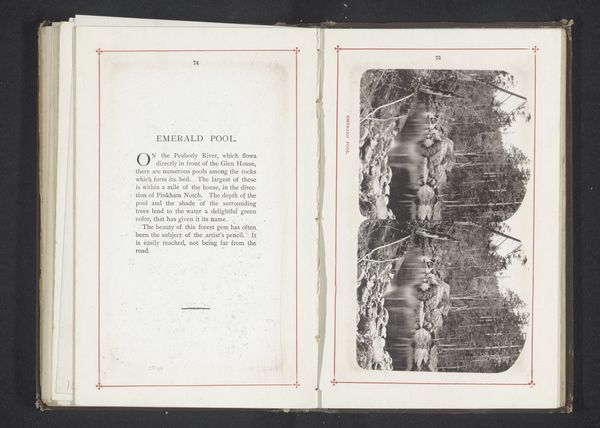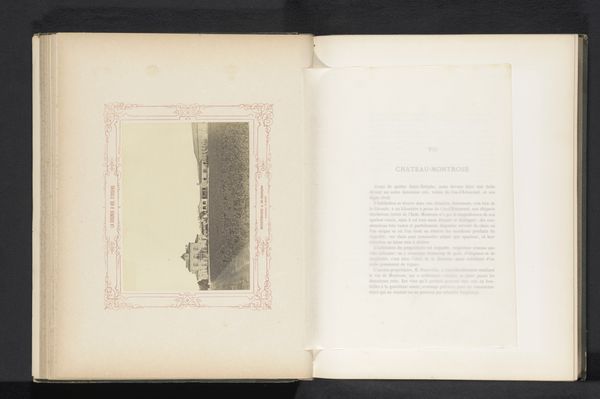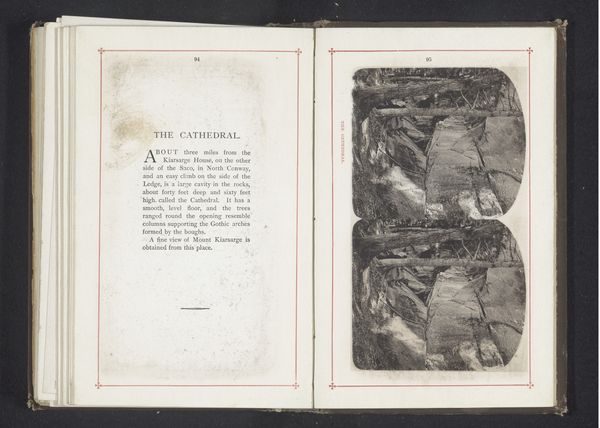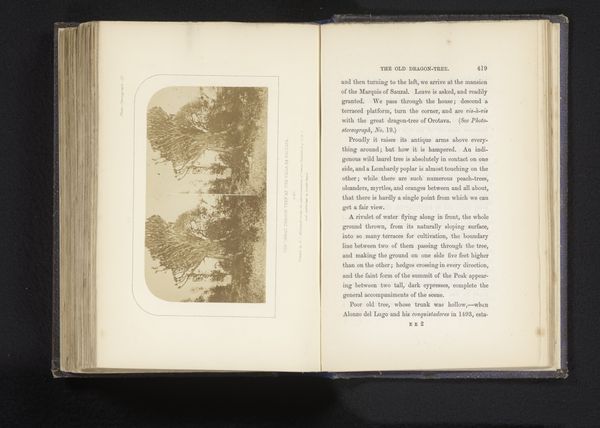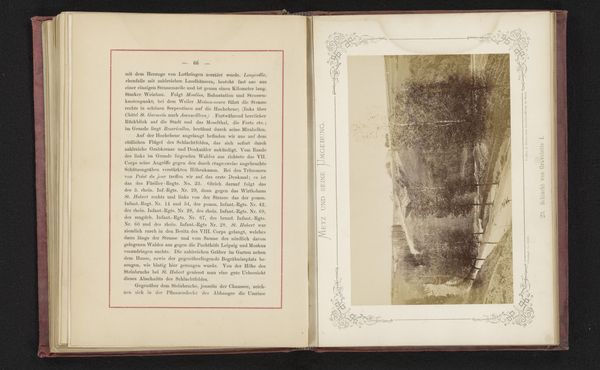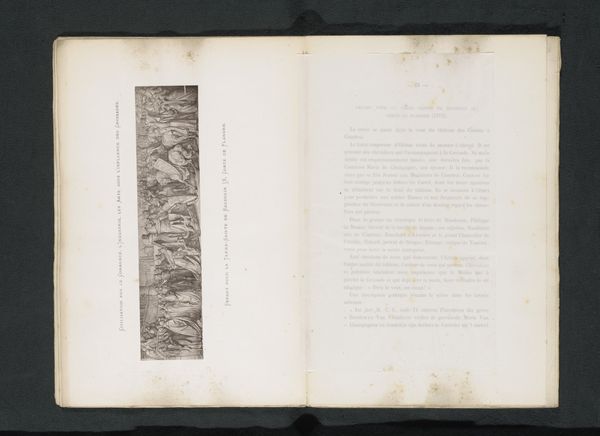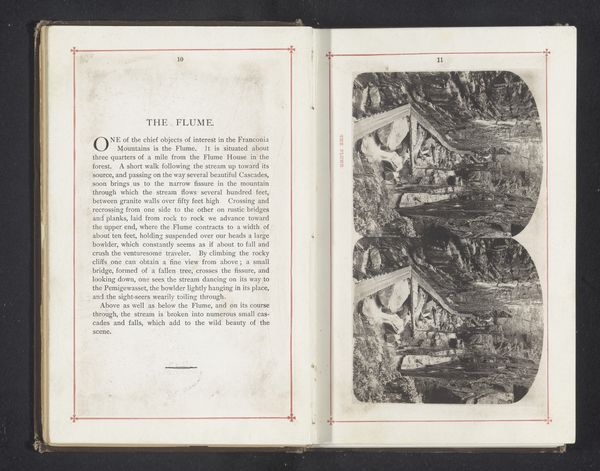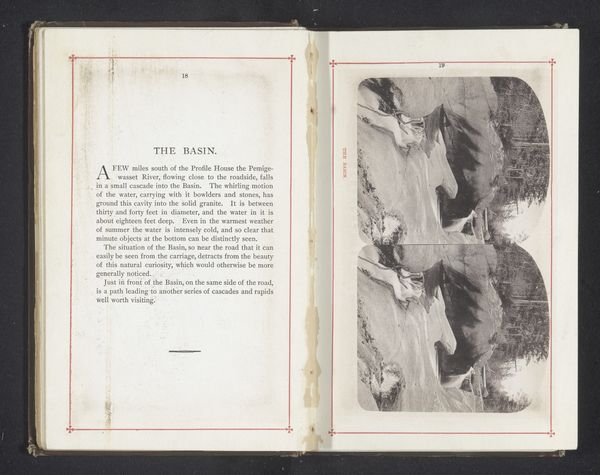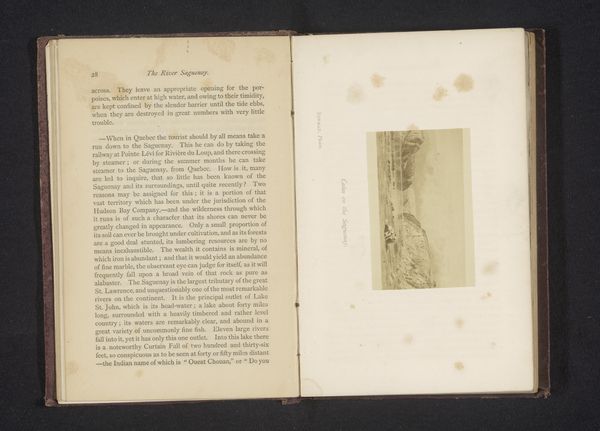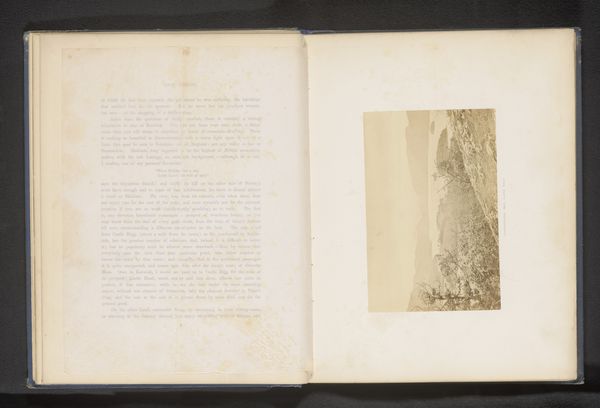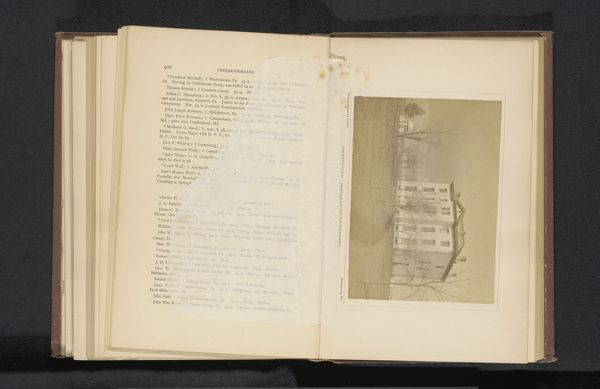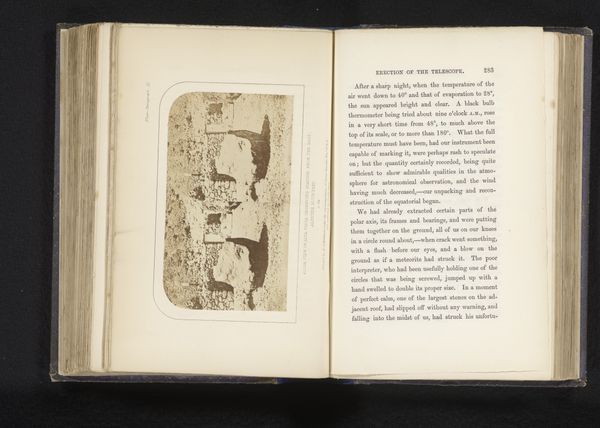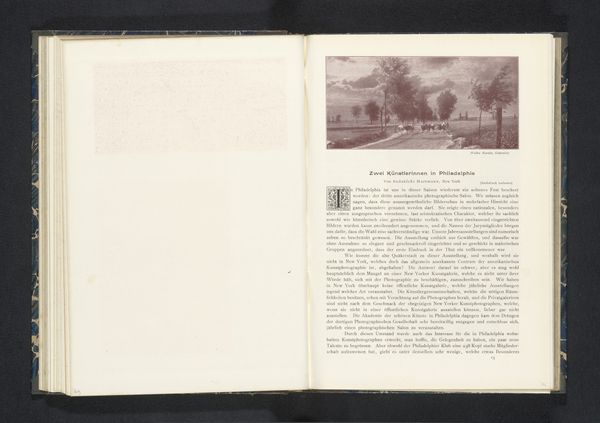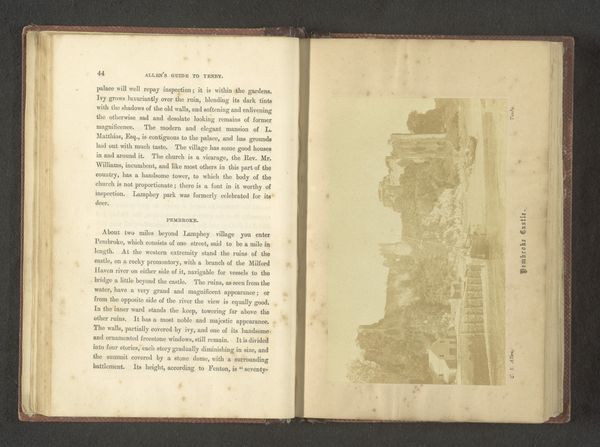
print, photography, gelatin-silver-print, albumen-print
#
aged paper
#
homemade paper
#
script typography
#
paperlike
# print
#
hand drawn type
#
landscape
#
photography
#
hand-drawn typeface
#
fading type
#
stylized text
#
gelatin-silver-print
#
thick font
#
albumen-print
#
historical font
Dimensions: height 92 mm, width 168 mm
Copyright: Rijks Museum: Open Domain
This stereoscopic image of Plymouth, New Hampshire was produced by the Bierstadt Brothers in the late 19th century. It reflects the aesthetic and cultural values of a time when tourism and idealized landscapes played a significant role in shaping American identity. This artwork, published in a book, captures a serene, almost romanticized view of the town, emphasizing its natural beauty and tranquility. During this era, stereoscopic images were a popular form of entertainment, and were marketed to middle-class families. For many, these images offered a vicarious experience of travel and exploration, allowing them to "visit" distant places without leaving their homes. The image’s narrative is one of idealized American progress and natural harmony, subtly reinforcing the idea of a nation blessed with unparalleled beauty and opportunity. But this narrative can obscure the historical treatment of marginalized groups, such as the Indigenous populations whose displacement enabled this vision of undisturbed natural beauty. This duality invites us to reflect on whose stories are told and whose are left out.
Comments
No comments
Be the first to comment and join the conversation on the ultimate creative platform.
